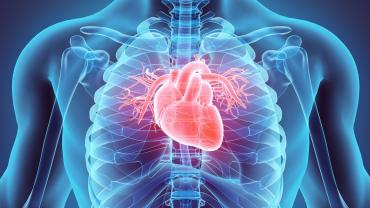
Electrolytes are a group of minerals that carry an electric charge and can generate and conduct action potential in the nerves and muscles, which is key for maintaining optimal heart health. Among the significant electrolytes in the body, magnesium, sodium, and potassium, in particular, support cardiovascular health and function in various ways.
Magnesium (Mg) is required for the active transport of ions like potassium and calcium across cell membranes, influencing the conduction of nerve impulses, muscle contraction, and normal heart function. Large prospective cohort studies have highlighted the association between higher magnesium intake and a reduced risk of heart failure and strokes. Additionally, serum Mg concentration was found to be inversely correlated with the risk of developing heart failure, atrial fibrillation, and microvascular complications (chronic kidney disease, foot complications, and diabetic retinopathy) in patients with type 2 diabetes.
Magnesium's involvement in muscle relaxation, nerve conduction, and cardiovascular function suggests its potential to support healthy blood pressure. A meta‑analysis concluded that the groups with patients who supplemented with Mg in the range of 120 mg to 973 mg of Mg per day experienced a lowering of both systolic and diastolic blood pressure readings. These effects were more pronounced for Mg intakes at 370 mg daily.
In vitro, animal models, and human studies reveal that Mg may support overall cardiovascular support by enhancing endothelium‑dependent vasodilation, improving lipid metabolism, promoting healthy inflammatory responses, and inhibiting platelet function. Furthermore, recent findings suggest that Mg may play a role in glucose and insulin metabolism by regulating tyrosine kinase activity on insulin receptors and glucose transporter type 4 (GLUT4), which may be clinically relevant for those with type 2 diabetes or insulin resistance.
In addition to magnesium, the balance between sodium (Na) and potassium (K) is vital for heart health. Sodium, the major extracellular cation, regulates fluid balance and muscle and nerve function. Due to the central role of sodium and chloride (another significant electrolyte) in extracellular fluid balance, these two minerals control extracellular volume and blood pressure. Potassium, the major intracellular cation, is pivotal in maintaining cell membrane potential, water and sodium regulation, acid-base balance, and normal heartbeat. A healthy Na/K ratio is associated with healthy aging and reduced risk of cardiovascular disease. A high Na/K ratio is often associated with a diet high in processed and packaged foods and low in fruits and vegetables.
Optimal potassium status has also been associated with helping maintain normal blood pressure. Hypokalemia, a condition characterized by low potassium levels, poses significant risks to heart health, including ventricular tachyarrhythmias and increased mortality risk. In a prospective population study published in 2018 in the American Journal of Medicine, mild hypokalemia was associated with increased systolic blood pressure, increased stroke risk, and, to a lesser degree, increased mortality risk. Causes of hypokalemia extend beyond dietary insufficiency to include the use of certain medications, activation of the renin-angiotensin-aldosterone system, and chronic stress (high catecholamine levels). Chronic stress, often overlooked in hypokalemia cases, contributes to the translocation of potassium and magnesium into skeletal muscle, potentially leading to delayed myocardial repolarization and an increased propensity for arrhythmias.
Conversely, hyponatremia (low sodium concentration) is an electrolyte disorder that can occur in individuals with hypertension and heart disease due to excessive dietary Na restriction. Hyponatremia can also be exercise-induced due to sodium loss through sweating. Hyponatremia can result in adverse effects on the body, emphasizing the need for a balanced electrolyte approach.
In conclusion, the role of electrolytes goes far beyond just supporting hydration. Maintaining optimal electrolyte balance of magnesium, sodium, and potassium helps to promote optimal heart functioning in numerous critical ways.
By Danielle Moyer Male, MS, CNS LDN